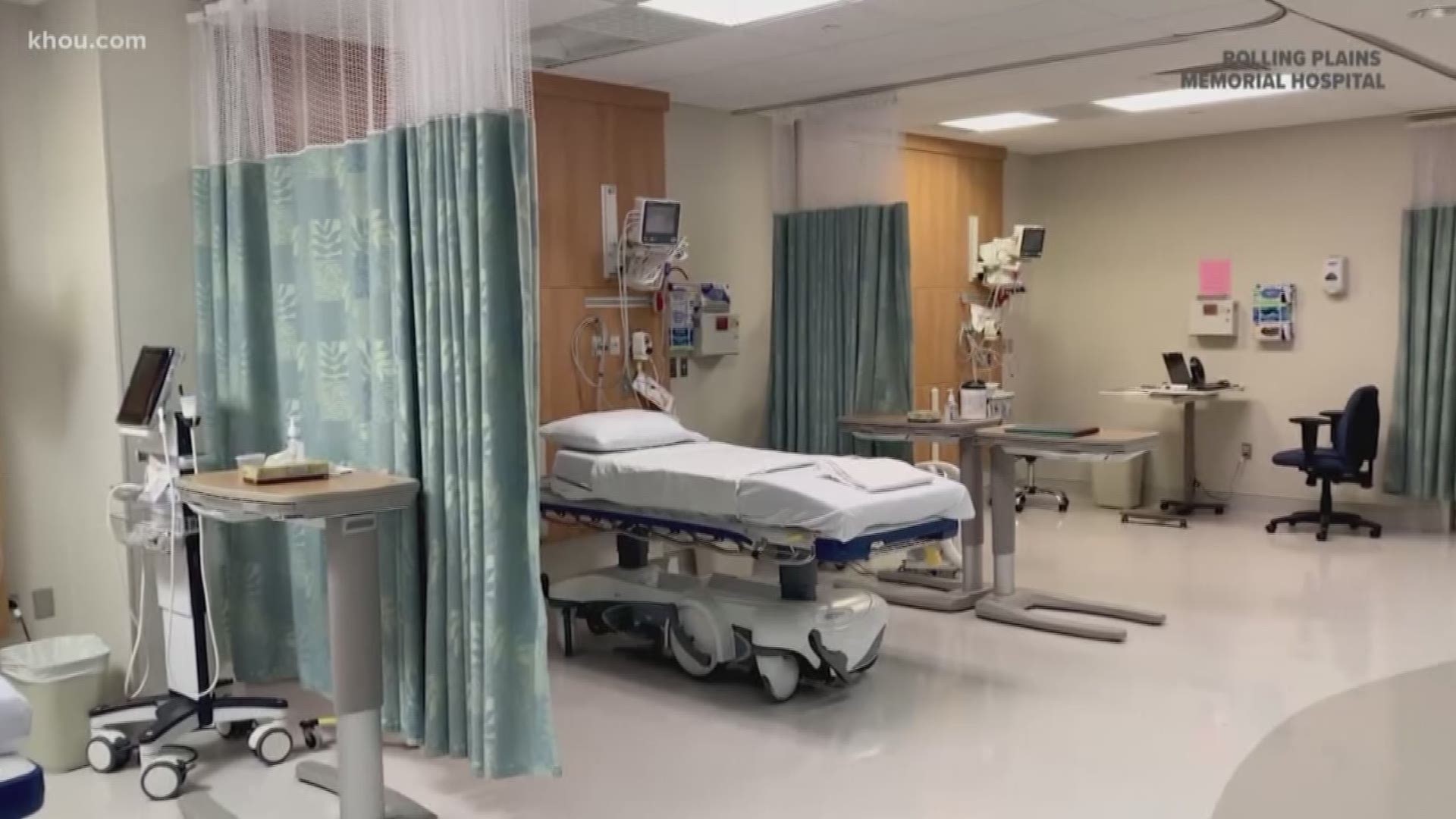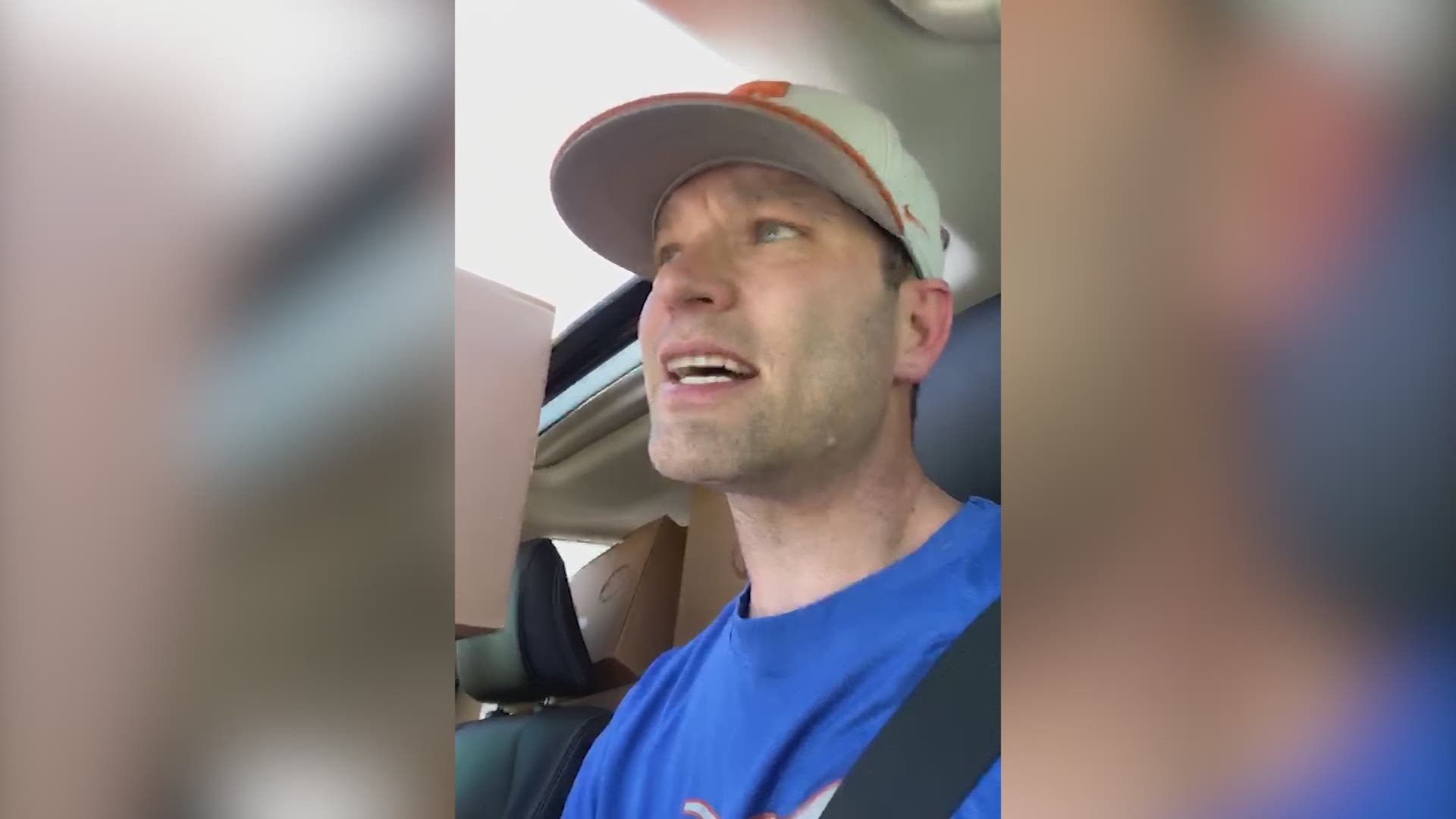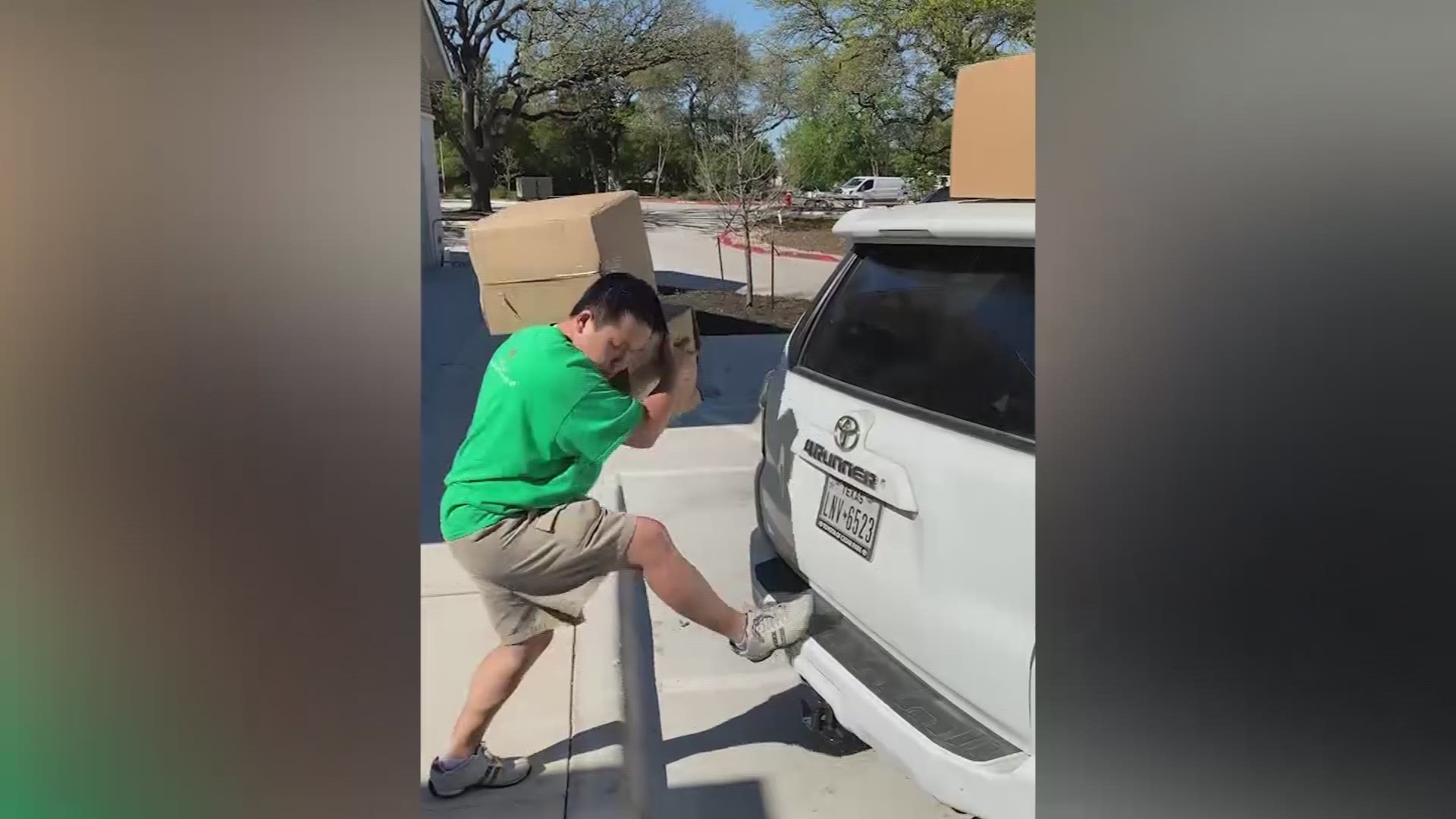HOUSTON — Some rural hospitals use the word desperate when describing their need for supplies to respond to COVID-19, some have reported having zero ventilators, necessary to treat some novel coronavirus patients.
John Henderson, President and CEO of the Texas Organization of Rural and Community Hospitals (TORCH) has become a purchasing agent in recent weeks, although it's not his specialty.
“We've been overwhelmed by the critical need and shortages of our rural hospital members and their desperation,” Henderson said. “Most of every day trying to find PPE supplies, masks, gloves, hand sanitizer for our hospital members,” Henderson said. “I’ve got my tail kicked trying to be a purchasing officer.”
TORCH is typically an education and advocacy group, representing rural and community hospitals at the State Capitol. According to TORCH, Texas has 157 rural and community hospitals. The medical facilities serve about 3 million Texans. The organization defines a rural hospital when the facility is located in a county of 60,000 or fewer people, based on the most recent census. The hospital can be designated by Medicare as a Critical Access Hospital, Sole Community Hospital or Rural Referral Center in a non-Metropolitan Statistical area, according to the description provided through the organization’s website.
Henderson said he recently bought some masks from a shipment that came from Mexico.
“My first reaction was, ‘Thank God we found some supplies. Let's do it,’” Henderson said. “When I saw that they weren't actually N95 respirator masks, I was frustrated and disappointed.”
Henderson said he bought 70,000 masks and spent the rest of the week shuttling them across the state.
“It was nuts, but that’s the way it worked out,” he said.
Henderson said TORCH paid 85 cents for the non-N95 masks. Normally they’re .25 cents. In January, he said N95s were about .50 cents each, the organization just bought some at $2.75.
“I've heard from rural Texas hospitals that were trying to buy individually at lower quantities that they paid $7 or $9 each,” Henderson said. “Someone should go to jail.”
“The CDC had recommended bandanas when you couldn't have facemasks, and that's just almost incomprehensible to me, in the wealthiest country in the history of the world,” he added.
Henderson said TORCH has filed multiple reports on price gouging with the Attorney General’s office for investigation.
Henderson said TORCH recently surveyed its member hospitals on how many ventilators each had. Not everyone responded to the survey. But from the ones that did, Henderson said the organization estimates about 300 ventilators are available in smaller communities, about two per facility.
Some hospitals said they didn’t have any ventilators. Which wouldn’t be a problem, Henderson said, if it weren’t for COVID-19.
He said rural ICU patients are typically taken to big city hospitals. If those are full, “then you've got a scary situation,” Henderson said.
“So rural preparedness is fine,” Henderson said. “There are situational supply shortages, staffing challenges and eventually equipment deficits. But, at the moment, rural hospitals are not only prepared and responding but that meeting the local need.”
Henderson said some rural counties are waiting for COVID-19 to show up. As of April 6, Henderson said more than 60% of Texas counties confirmed COVID-19 cases; a lower than likely number because of the shortage of test kits.
The lack of test kits is one of Donna Boatright’s main concerns. She’s runs Rolling Plains Memorial Hospital in Sweetwater Texas, her hometown.
“(What we are) really struggling to find a solution to is testing materials,” Boatright said. “You know, we can’t test here yet. We don’t have the capability of testing.”
Rolling Plains Memorial Hospital employs 350 people according to Boatright, making a major community employer. The hospital, health clinic and doctors’ offices are the only healthcare providers for the roughly 15,000 people who live in Nolan County, where Sweetwater is the county seat.
Boatright says her hospital can’t get some basic medical supplies, including 70% alcohol used in surgery, blue barrier gowns, MDI adapters, masks with shields, Sani wipes, Lysol spray and hand sanitizer.
Isolation gowns and masks have been back-ordered since mid-February.
“We're looking for every way to conserve what we already have,” she said.
Boatright said her hospital had enough personal protective equipment to last about two weeks, depending on patient volume.
With all elective surgeries canceled to prepare for COVID-19 patients, one of the sources of income for the small-town hospital is gone.
And that’s one of many things that threatened the financial viability of Boatright’s hospital.
“Many of us operate at zero or negative operating margin,” Boatright said.
“Texas leads the nation in closures of rural hospitals,” she added. “We've had almost 30 closures of rural hospitals and in the last six years or so. And that is that's astounding. Those hospitals served communities that were much like mine. They were the only provider of healthcare in those communities. Without them there, those communities don’t have any healthcare services in some instances.”
We reached out to Agriculture Commissioner Sid Miller. He oversees rural hospitals in Texas. We wanted to know what could be done to help. He told us he recently requested $40 million in emergency funding from the state, to help rural hospitals deal with COVID19.
“We’re also worried about keeping some of these hospitals open and solvent,” Miller said. “This is an economic struggle for them, of course, the cost of the supplies are up, they need to buy new supplies like ventilators. The cost of business is way up. Rural hospitals, let's just face it, they struggle to stay open in good times, so this really put a financial strain on our rural hospitals.”
Miller told KHOU 11 his inspectors have shifted focus to help fight COVID-19.
“My inspectors would normally be inspecting fuel pumps and scales, they are delivering a lot of that personal protective equipment to local hospitals,” Miller said.
He said the AG Department recently received 300 masks from the Governor’s office, those are being distributed to the rural hospitals.
“One thing that we are short on is ventilators,” Miller said. “We’re working with manufacturers and distributors to get those out to rural Texas just as soon as we possibly can.”



